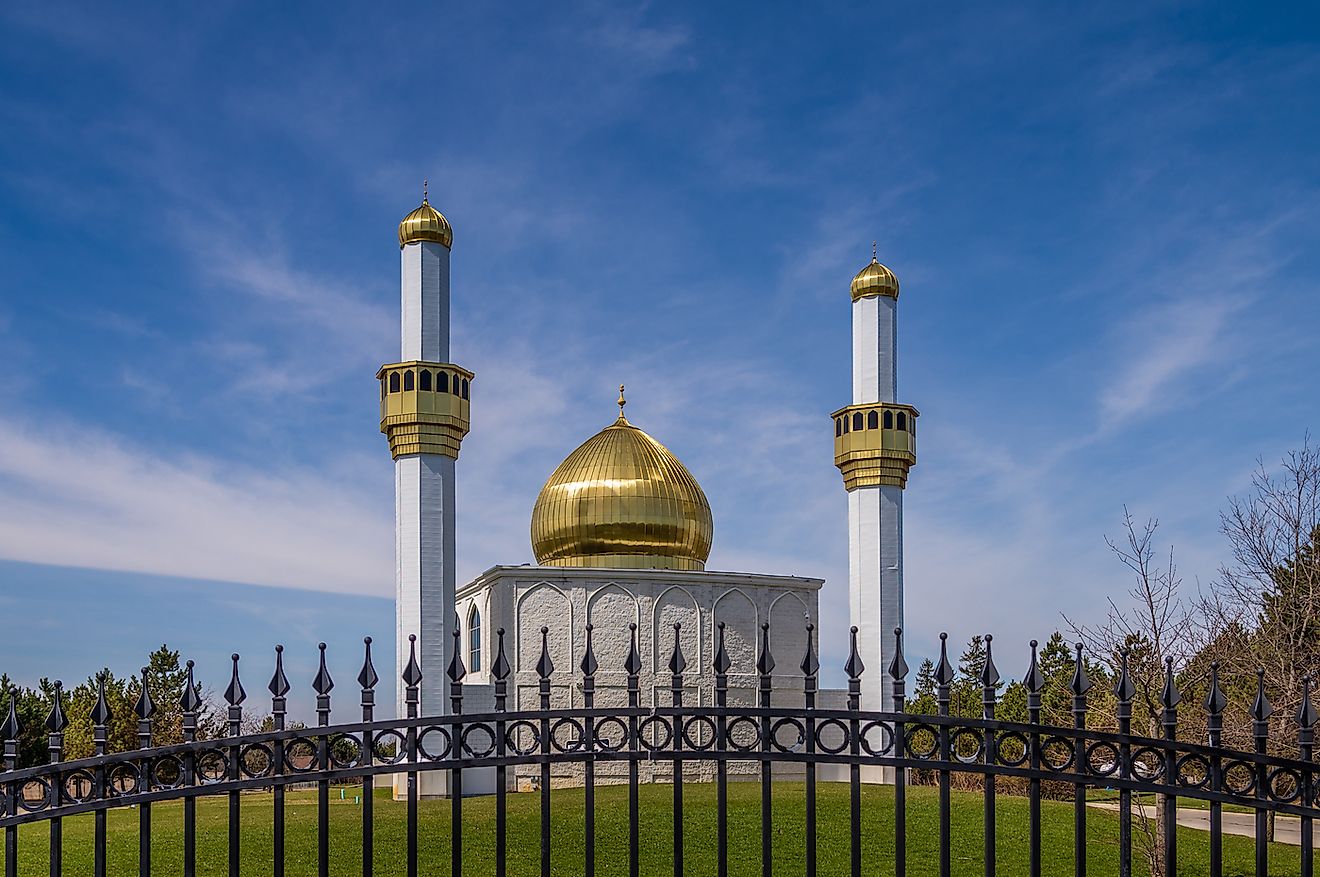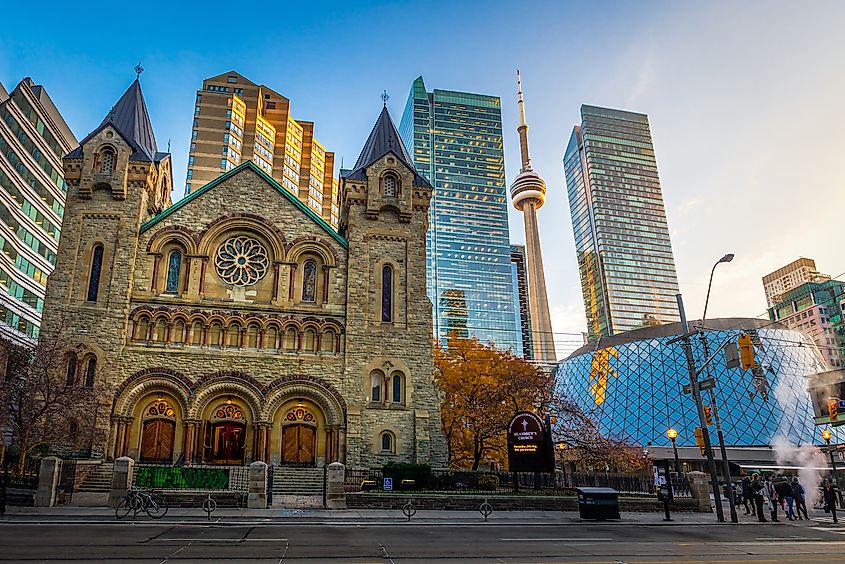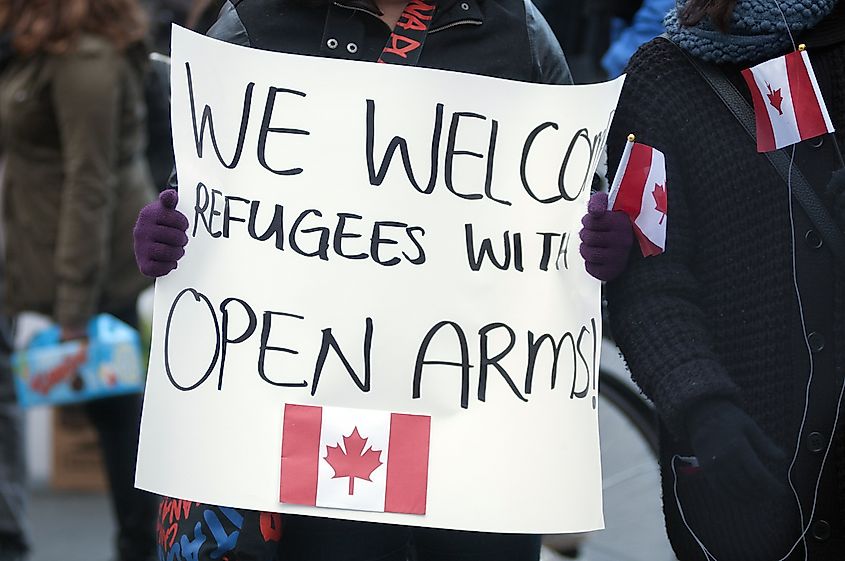The Fastest Growing Religions In Canada

- In 2011, there were there were 1,053,945 Muslims living in Canada
- Two-thirds of Canadians identify as Catholic or Protestant, but both of these Christian groups have shown decreases in their numbers.
- In the 1970s and 1980s, most of Canada’s immigrants were European and Christian. Now, about half are from the Middle East, Africa, and Asia.
- The percentage of Canadians who identify as Catholic has dropped from 47 percent to 39 percent over the last four decades
Back in 2017, Statistics Canada predicted that by 2036, the number of people living in the country and practicing non-Christian religions would almost double. The article also mentioned that this group would specifically include Muslims, Hindus and Sikhs. This opinion seems to agree with a report by the National Post, which showed the Muslim population growth rate at 72.53 percent, Hindu at 67.68 percent, and Sikh at 63.43 percent. Also surprising: the percentage of people who have no religion, or non-believers, also grew, to 63.68 percent.
These numbers are much higher than the other religions listed, with some such as Jewish and Roman Catholic on the decline. Statistics Canada also claimed that most of the country’s immigrant population would stay concentrated in its largest cities, including Montreal, Toronto, Calgary, Vancouver, and Winnipeg.
Reports also suggest that in the coming years, half of Canada’s immigrant population will be arriving from Asian countries, while immigration from European nations will drop down to 15 percent. The transition will be clearly seen in work-age people here, with up to 40 percent being visible minorities. This high rate of immigration from Asian countries is set to change the religious demographics of the country significantly.
Canada's Religious Composition

Worldpopulationreview has the most up-to-date figures on population, with Canada’s shown at 37,724,826 in June of 2020. Toronto was the most populous city. However, the data on religious beliefs is only collected during every other census. The last figures for the country's religious composition is from 2011. According to it, the following is the share of the major religious groups in Canada's total population:
- 67 percent Christian
- 24 percent had no religion
- 2 percent Muslim
- 4 percent Sikh
- 1 percent Jewish
Changing Religious Demographics

In the 1970s and 1980s, most of Canada’s immigrants were Europeans ahdering to the Christian faith. Now, about half are from the Middle East, Africa, and Asia. Two-thirds of Canadians (including adults and children) identify either as Catholic or as Protestant, but both Christian groups have seen substantial erosion in their shares of the total population according to the analysis by the Pew Research Center’s Forum on Religion & Public Life. The percentage of Canadians who identify as Catholic has dropped from 47 percent to 39 percent over the last four decades, while the share that identifies as Protestant has fallen even more steeply, from 41 percent to 27 percent.
The growth of non-believers has also been seen as younger, religiously unaffiliated people are replacing more observant, older generations. One out of ten Canadians who were born from 1947 to 1966 had no religious affiliation when surveyed in 1981; and one out of five had no religious affiliation in 2011. The data also showed that Canadian and U.S. men were less likely to be affiliated than females. It does appear that the influence of religion on public life in the country is waning. Another Pew Research survey showed that 64 percent of Canadian adults felt that religion was less important in the country than 20 years ago.
Open Arms
Canadianvisa.org claimed that one of Canada’s core values is multiculturalism, and it was the first country on earth to adopt a policy of such. Some feel that Canada is more accepting of different cultures and religions that other places. As a result, its environment may be more welcoming and tolerant for immigrants of the Islamic faith.
Another one of Canada’s rig draws is that permanent residents have access to free healthcare until they turn 25. People are also attracted to the country’s education, as it is subsidized by the Canadian government up to secondary school.
Changes Are A-Coming
Canada’s second-largest religion is now Islam. As the Islamic population grows, Globalnews predicted that less people will be speaking English and French here in the future. It is thought that the percentage of native-speaking Francophones will drop, and more people will be bilingual. This will possibly impact education and many other parts of society.
There have been some cultural clashes, as well. Last year, the Quebec government passed a bill to cancel 16,000 immigration applications; it appeared as though they were attempting to slow down immigration. In June of 2019, Quebec’s government also passed a law that barred public employees such as judges, police officers, and teachers from wearing religious symbols at their workplaces. This included Muslim head scarves and Sikh turbans as well as Catholic crosses and Jewish skullcaps. Though Quebec premier François Legault stated that it was necessary to protect the separation of religion and state, there was a public outcry that these regulations opposed civil liberties.
Catherine McKenzie is a lawyer for a group that is trying to overturn the law, and was working to challenge it in Quebec Superior Court. “This government is introducing a law that tramples on the rights of thousands of people,” she said. There was a rally in April of 2019 in Montreal before the religious symbols bill was passed, with thousands of people protesting.
The Fastest Growing Religions In Canada
| Rank | Religion | Growth/decline rate by % |
|---|---|---|
| 1 | Muslim | 72.53 |
| 2 | Hindu | 67.68 |
| 3 | No religion | 63.68 |
| 4 | Sikh | 63.43 |
| 5 | Buddhist | 22.14 |
| 6 | Christian Orthodox | 14.82 |
| 7 | Jewish | -0.15 |
| 8 | Roman Catholic | -0.5 |
| 9 | Anglican | -19.83 |
| 10 | United | -29.29 |











